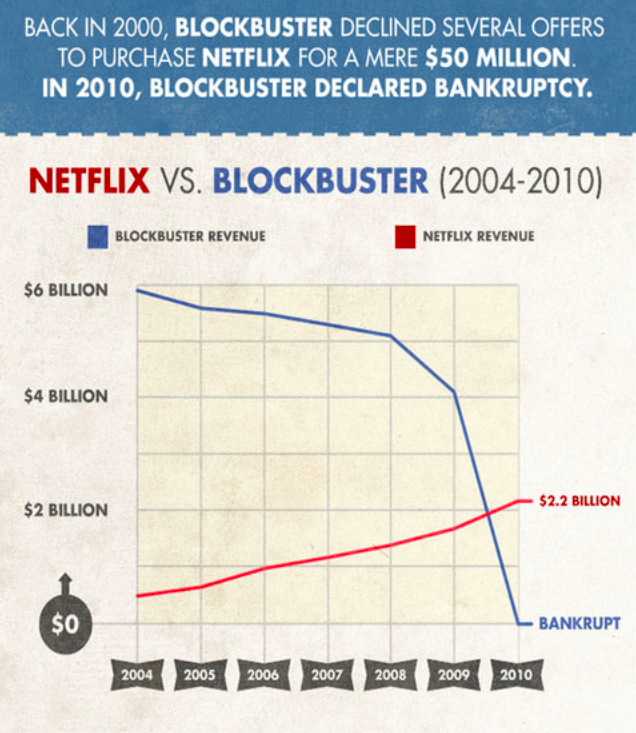Starting a business presents exciting difficulties as well as potential learning opportunities obtained from the risks involved. Understanding these particular challenges may better prepare professionals to deal with them if they face them when starting a firm.
Taking risks is nearly synonymous with being an entrepreneur. To start and sustain your own firm, you must risk your employment, your income, and even your mental health. For most people, the thought of making their own decisions and controlling their own fate is worth it. However, if you want to be a successful entrepreneur, you must be prepared for the risks and challenges that come with the job.
In this article, we explore 5 challenges facing entrepreneurship and how an entrepreneur might overcome them. Also, look out for some additional tips.
1. Lack Of Steady Paycheque
No doubt, entrepreneurs make an obscene amount of money. But no one becomes Steve Jobs in one day or even in a couple of months.
This means, the path is long and full of risks and it’s pretty black and white because you have to quit your current job, give up your career and dive deep into entrepreneurship. And in the past, you had a steady source of income, but now there’s no guarantee.
These are the most serious risks that a newborn entrepreneur needs to consider before taking the final plunge. Because in the first few months, or even a year, you will have to work towards sustaining your company instead of thinking of a whopping or steady income.
- Solution: Keep a cash reserve
Let’s give you a reality check.
When you just start with your business, the chances are higher that you will not get any customers for at least 4-6 initial months. That’s why it is a good idea to keep at least a sufficient amount of reserve in order to survive these crucial months hassle-free.
2. Stay Wary Of Your Competitors – A Major Risk in Entrepreneurship
Every entrepreneur starts a business with a resolve to stay afloat despite the high competition. But there’s another form of competition that might not be as easy to face. Take Uber for example. It is quite obvious how the company is disrupting the market, or the taxi market to be exact.
This is one of the major risks in entrepreneurship that you have to take in your entrepreneurship journey. Unfortunately, just like the competition, there’s no way to prevent disruptions either. An entrepreneur can only work hard amid the risk and hope to come out untouched.
There are some examples of when companies went completely bankrupt due to disruptions. For instance, the same thing happened to “Blockbuster” when Netflix disrupted their market forcing them to file for bankruptcy protection.
Read Also: How to Conduct a Successful Fundraising Campaign
Have a look at this infographic that tells a perfect story of how things went downhill for Blockbuster due to the disruption created by Netflix.

- Solution: Run a proper analysis
You can emerge out of such risks only if you run a proper analysis of your industry. You need to identify the potential disruptions that might affect you in the future so that when the time comes you are equipped with all the workable solutions for such challenges.
For that, we highly recommend you run a SWOT analysis! It is a study undertaken by an organization to identify its internal strengths and weaknesses, as well as its external opportunities and threats.
And it should be noted that, don’t wait for other startups to come out and offer something new. Stay ahead of time and keep on introducing new technology regularly.
3. Fluctuations In Currency
Globalization is rampant today, there’s no doubt about it. And every entrepreneur strives to try to tap into the overseas market by increasing their outreach.
But this scenario comes up with one of the most common entrepreneurship risks, which is the uncertain fluctuations in currency. If this fluctuation somehow ends up working against you, then you will be trapped in the rising exchange rate losses.
Remember, it works in both ways, whether you are supplying overseas or you are getting supplies from the global market.
- An ideal solution to this risk in entrepreneurship
This entrepreneurial challenge has no surefire solution as it is somewhat difficult to predict them.
And the best entrepreneurs are those who keep a close look at these future risks and have a way to keep their profits unharmed after taking this into account.
4. Cyber Security Risks
One of the most common entrepreneurship risks and challenges, especially in today’s world is – cybersecurity risks. Everyone knows its drastic effect (in terms of costs and valuable data) if your confidential information leaks out.
And as per Cybersecurity Ventures, “Global cybercrime costs to grow by 15 percent per year over the next five years, reaching $10.5 trillion USD annually by 2025.”
The cybersecurity risks not only lead to trust issues but also amount to millions and billions of losses. So, every entrepreneur should be geared to face such risks in the future of their business.
- Solution: Identify the threat and use two-factor authentication
First, you have to identify prospective cybersecurity risks and see what areas needed security. After all, the first step to solving a problem is to identify what needs to be solved. Once you are through with that, make sure that you use a two-factor authentication system.
Two-factor authentication method requires you to enter a password along with a code (which you will receive on your smartphone), something that only you have access to. While you are at it, don’t forget to encourage your employees to do the same and use proper spyware removal tools.
5. Maintaining a Steady Customer Pipeline
Convincing your first client is hard enough, but even when your business is up and running, maintaining a steady customer pipeline is not straightforward. It is also somewhat of a difficult task to get people to put their faith in you when you are at the early stage of your business.
For that, you have to work on building a loyal community and a large network of prospects to get a steady lead flow in your pipeline.
Solution: Get referrals and use word-of-mouth marketing
This is where you can leverage tactics such as word-of-mouth marketing, customer testimonials, and the list goes on and on. Also, if you see that someone in your network might help you out in getting more leads, then don’t hesitate to reach out. Ask for referrals, recommendations, and anything else to get the word around.
You can even use Bing or Google Ads to grow your client pipeline.
Came as a shocker, right?
Listen to what Duane Brown, the founder, and head of the strategy at Take Some Risk, Inc., has to say about Bing Ads and how he got a steady lead flow through the platform:
Moreover, if you want to get started with building a community using a referral chain and word of mouth, you can get every information regarding word-of-mouth marketing, and other forms of customer referrals.
6. Trusting Your Business Partner or A Key Employee
Many entrepreneurs overlook this, however, trusting a key employee or even your business partner is one of the most common entrepreneurship risks. For one, when you are just getting started, you are unlikely to have hordes of employees. Instead, you will probably have a business partner and only a few employees.
To get things up and run the business smoothly, you will have to put a huge amount of trust in your business partner or a key employee. But remember, this risk is unavoidable as you don’t have many options at this stage of life. There are so many consequences that can arise in case if this trust turns out to be misplaced.
Firstly, your trusted employee or partner will be privileged to so much important data and information regarding your company. Plus, putting all your absolute trust in one person’s ability might also lead to a miss in timelines.
7. Sacrificing private capital
Want to become an entrepreneur? That’s wonderful! But have you thought of the funding that you will require to start your own business venture? Many people are able to pull it off and many are not.
More often than not, you have to shell out your own private savings to fund your business venture. This is one of the most common entrepreneurship risks as it burdens you even more.
If God forbid, your business venture fails to pick up, then you might not even have a safety capital to fall back on. This is actually a big risk to take, however, once things start to pick up, you will be happy that you took this risk.
8. Investing Your Personal Time & Health
If you think that being an employee takes away your social life and the maximum amount of time (and health), then you haven’t seen anything yet. Being an entrepreneur is a tedious task that will take away a lot from you.
Initially, you might even feel like the whole business venture is only taking away your resources without giving away anything in return.
Moreover, the lack of returns and profits might take a toll on your mental as well as physical health but now that you have started your business, make sure that you don’t give up in between.
Maintain a healthy lifestyle by starting your mornings with productive routines, ending your nights with enough sleep, and taking breaks throughout the day. Yes – power naps count too. In fact, Sleep Advisor experts noted that power naps improve your productivity and overall well-being.
Consider this as nothing more than a few obstacles in the path.
Always remember that you are not the only one undergoing these risks in entrepreneurship, in fact, it is one of the most common ones. However, once everything works out, we ensure you that it will turn out to be a risk worth taking.
5 Challenges Facing Entrepreneurship
Here are 5 challenges that entrepreneurs might face and how they might approach them:
1. Selecting a service or product
An entrepreneur may have the skills and passion to start a company, but one important factor in starting a business is deciding what to sell. To start, they may identify a demand in their community they could meet. A marketing firm or freelance researcher may help them conduct market research to discover what needs there are and which ones they have the resources to address. For example, an entrepreneur may learn that the people in their community drive out of town to get massages, so they know there is a local demand for a spa that they could fill.
2. Developing a sales strategy
Though an entrepreneur may recognize an opportunity in a certain community, they might also research the best way to sell to that community. They may hire a professional to create a marketing plan or make one themselves. To do this, they can assess who their target audience is and what strategy might best reach them. For example, if an entrepreneur opens a business in a rural community where they know many people listen to the radio, they may develop a digital ad to broadcast locally.
3. Establishing starting funds
For entrepreneurs who start with lower capital, there are ways to earn funding to get started. They may begin with a traditional bank loan or a federal small business loan. If they plan to provide a product or service that they know has significant demand already, they might start a fundraising campaign. For entrepreneurs who would rather use a self-fueled growth model, they may start by targeting a small audience and slowly building to serve larger client bases.
4. Maintaining a budget
Because running a company can be unpredictable, an entrepreneur can stay prepared by carefully maintaining a budget. They may do this by prioritizing efficient marketing strategies and allocating the rest according to their unique needs. Assessing which expenses are necessary may help entrepreneurs adjust their funds to better prepare for changes. For example, they may observe that there is a more affordable manufacturer they can use and reallocate those savings to address higher utility costs.
5. Sustaining revenue
It’s important for entrepreneurs to manage their organization’s money carefully to account for any potential delay in invoice payments. Aside from budgeting, entrepreneurs may charge a down payment to ensure they can afford expenses until they receive full payment. By sending invoices as early as possible and requesting payment as soon as they complete projects, entrepreneurs can secure funding to keep operations running efficiently.


